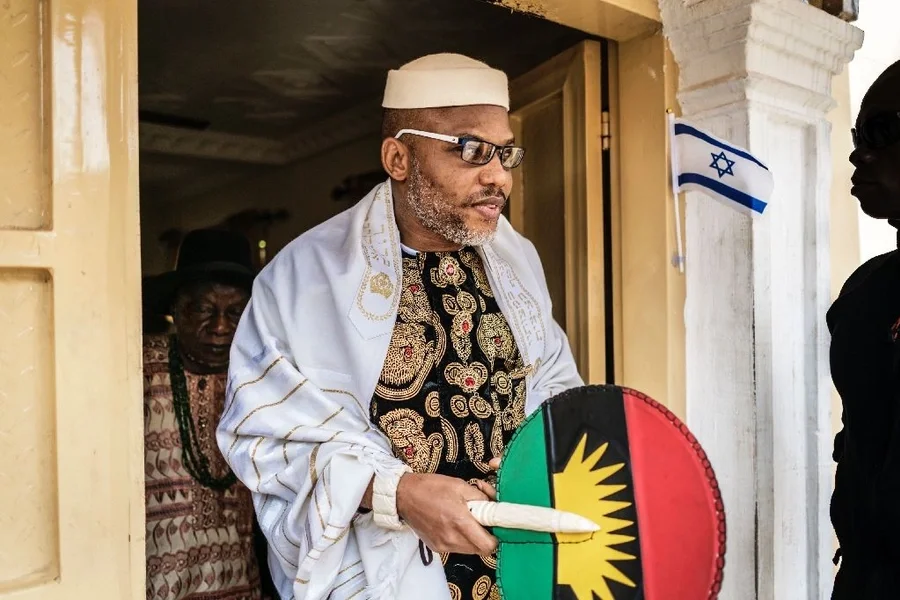The ongoing legal saga of Nnamdi Kanu, leader of the banned Indigenous People of Biafra (IPOB), has stirred fresh unrest in Nigeria’s capital, Abuja. On Thursday, October 23, 2025, Kanu, detained since 2021, will begin his defense against terrorism charges after a court rejected his no-case motion.
The British-Nigerian activist denies the allegations tied to his push for an independent Biafran state in Nigeria’s southeast.
IPOB, outlawed in 2017, seeks secession for the Igbo-majority region, a cause that resonates deeply but divides the nation. Kanu’s trial, marked by years of legal battles, continues to inflame political and ethnic fault lines, with his supporters viewing him as a freedom fighter and authorities labeling him a threat.
Clashes Outside Court
As Kanu’s court date neared, supporters rallied outside the Abuja courthouse, demanding his release. Led by activist Omoyele Sowore, the crowd faced heavy police response on Monday, October 20, 2025. Officers used tear gas and blocked major roads, causing widespread traffic disruptions.
Witnesses reported arrests of several individuals, including some from Kanu’s legal team and family, though police have not issued a statement.
The crackdown heightened tensions, with videos of the chaos circulating online. Supporters chanted slogans for Biafra, while others condemned the government’s handling of the case, accusing it of stifling dissent. The heavy security presence underscores the sensitivity of Kanu’s trial in a country grappling with separatist movements.
A Polarizing Figure
Kanu, 58, remains a polarizing figure. In the southeast, many see him as a hero fighting for self-determination, rooted in historical grievances from the 1967-1970 Biafran War. To the government, he’s a destabilizing force, with IPOB’s activities linked to sporadic violence.
His 2021 arrest in Kenya and extradition to Nigeria sparked global debate, given his British citizenship, raising questions about due process.
The trial’s latest turn a rejected no-case submission forces Kanu to present his defense, prolonging a case that has seen multiple delays. Legal observers say the charges, including inciting violence via radio broadcasts, carry severe penalties, making the outcome critical for Kanu and his movement.
Broader Implications
The unrest in Abuja reflects deeper ethnic and political divides. The southeast, feeling marginalized economically and politically, views Kanu’s detention as emblematic of broader injustices.
His case has galvanized IPOB supporters, but also drawn criticism from those who see separatism as a threat to Nigeria’s unity. Recent protests and arrests signal the potential for escalation if the trial’s outcome sparks further outrage.
Sowore, a vocal critic of the government, has framed Kanu’s detention as an attack on free speech, urging solidarity across Nigeria’s regions. Meanwhile, authorities defend their stance, citing national security. The trial’s fallout could influence upcoming political events, with 2027 elections looming.
Looking Ahead
As Kanu prepares to defend himself, Nigeria braces for more tension. His case tests the country’s ability to balance security and free expression while addressing ethnic grievances.
Supporters plan to maintain pressure for his release, while the government shows no signs of relenting. The trial’s outcome could either ease or inflame Nigeria’s fragile unity, with Abuja’s streets reflecting the stakes as the nation watches closely.




















